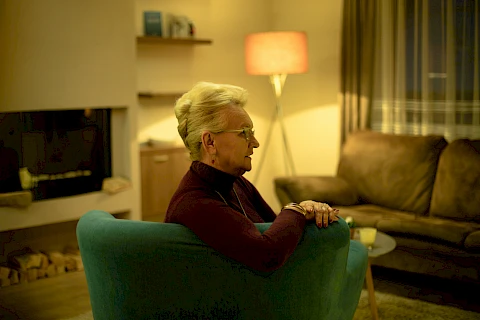
Seniors often experience changes in their vision, including difficulty seeing in low light or at night. These changes can impact their safety and quality of life. Caregivers need to understand the challenges seniors face and take steps to help. This article offers strategies to support seniors with night vision changes, including ensuring proper lighting, using night lights, and encouraging regular eye check-ups.
Night Vision Changes in Seniors
Night vision changes occur naturally as we age. Common causes include cataracts, glaucoma, macular degeneration, and a reduction in pupil size. These conditions can make it hard for seniors to see clearly at night or in dim light. Symptoms of night vision changes include difficulty driving at night, tripping over objects, and needing more light to read. If you notice a senior loved one squinting or struggling in low light, these could be signs of night vision issues. These changes can affect daily activities and increase the risk of falls and accidents.
Ensuring Adequate Lighting in the Home
Good lighting helps seniors with night vision changes. Here are some tips for improving lighting in key areas:
- Living Room: Use table lamps and floor lamps to create a well-lit space. Consider bulbs that are bright but not harsh, such as LED or soft white bulbs.
- Kitchen: Install under-cabinet lighting to brighten work areas. Ensure overhead fixtures fully illuminate the room.
- Bathroom: Place bright lights near the sink and mirror. Consider motion-sensor lights for nighttime trips.
- Hallways: Use sconces or wall-mounted lights to keep hallways well-lit. Make sure the lighting is even and eliminates shadows.
Choosing the right type of bulbs and fixtures matters. LED lights are energy-efficient and provide bright, even light.
Using Night Lights Effectively
Night lights can provide a gentle, constant light source that helps seniors navigate their homes safely at night. Placing night lights in strategic areas is key. Consider locations such as hallways to light the path from the bedroom to the bathroom, stairs to illuminate each step and reduce the risk of falls, and bedrooms near the bed for easy access.
Encouraging Regular Eye Check-Ups
Routine eye exams can help detect and manage night vision changes. Regular check-ups can catch issues early and ensure appropriate treatment. Caregivers can help by scheduling appointments and arranging transportation. Encourage your loved one to discuss any vision problems with their healthcare provider.
Assisting With Challenging Activities in Low Light
Many activities become challenging for seniors in low light. For reading, use a bright, adjustable reading lamp. Large-print books or e-readers with backlit screens can also help. When navigating stairs, ensure they are well-lit and clear of obstacles. Install handrails on both sides for extra support. Activities like cooking, sewing, or hobbies may require additional lighting or magnifying tools. Encourage your loved one to take their time and avoid rushing.
Help Seniors Navigate Night Vision Changes
Supporting seniors with night vision changes involves understanding their needs and making practical adjustments to their environment and routine. Adequate lighting, effective use of night lights, regular eye exams, and assistance with challenging activities can significantly improve their safety and well-being. If you need professional senior care services or have questions, don't hesitate to contact Senior Helpers Treasure Coast. We proudly serve Salerno, Stuart, Palm City, Jensen Beach, and Sebastian.